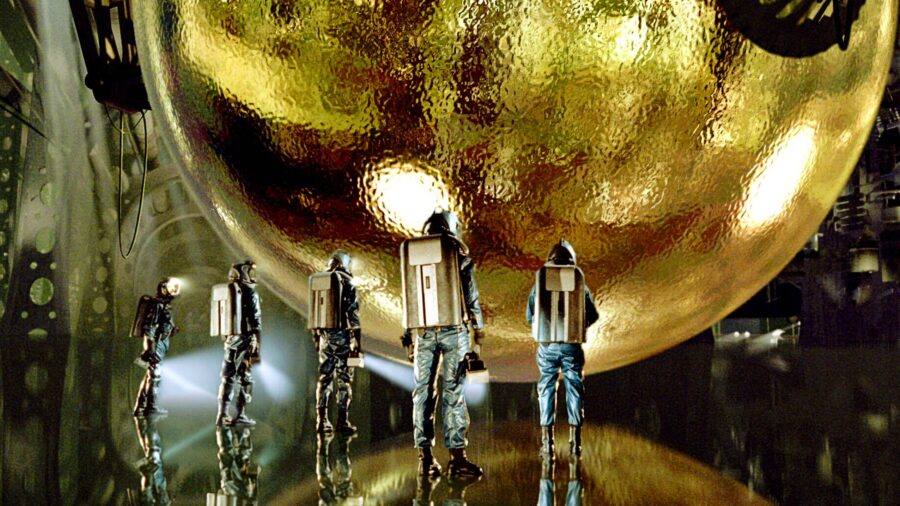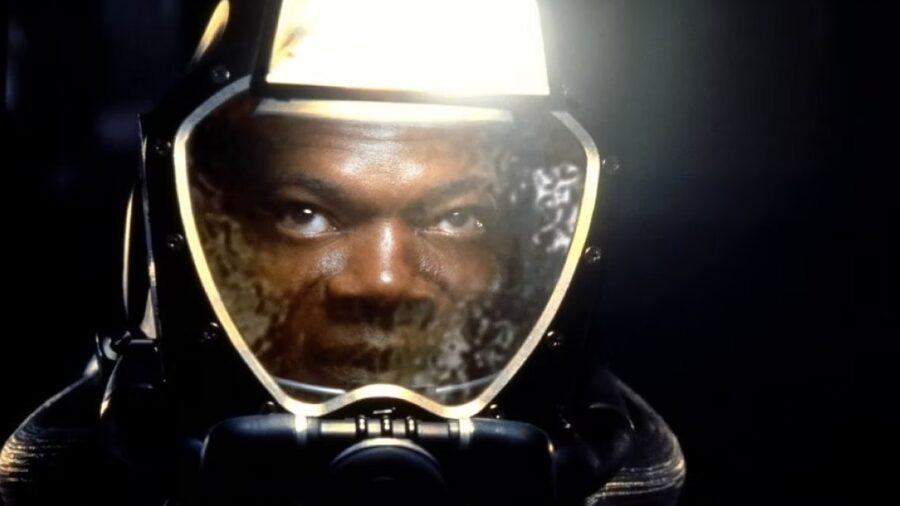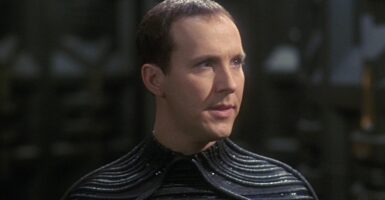Michael Crichton’s Best Story Isn’t Jurassic Park, It’s This Trippy Sci-Fi That Needs A Proper Adaptation
Michael Crichton's Sphere needs to be remade as a trippy, A24-style psychological horror film.

Michael Crichton may not be the household name that he was in the 1990s, when his books regularly moved millions of copies and major directors like Steven Spielberg leaped at the chance to adapt them, but his impact on pop culture is incalculable. If his career had only consisted of writing the novel (and co-writing the film adaptation screenplay) Jurassic Park, he would still have been responsible for one of the great science fiction franchises of all time. However, Jurassic Park is outstripped in ambition and depth in every way by his earlier novel Sphere, which desperately needs to finally be adapted properly.
Michael Crichton’s Sphere has already been adapted once, as a big-budget would-be blockbuster in 1998, starring Dustin Hoffman, Sharon Stone, and Samuel L. Jackson. The movie had a solid $80 million budget, was directed by the acclaimed Barry Levinson (the man behind the Tom Cruise-Hoffman hit Rain Man), and tanked horribly at the box office after being moved from the coveted Christmas release date so as not to compete with Kevin Costner’s The Postman. It did even worse with the critics, currently holding 13 percent on Rotten Tomatoes.

It is safe to say that the film adaptation of Michael Crichton’s Sphere did not make a mark on pop culture. The film version is cold and clinical, with none of the warmth of Jurassic Park; there are no majestic brontosauruses to gasp at, no cool, toyetic velociraptors, no open-shirted Jeff Goldblum. Instead, we have a hardnosed Peter Coyote barking at Dustin Hoffman, Sharon Stone’s frequently referenced suicide attempt, and Queen Latifah being stung to death by jellyfish.
To be fair, the film adaptation of Sphere is clearly intended to be a psychological thriller rather than a family-friendly movie, and literally no one in history has drawn in audiences like Steven Spielberg. But Sphere also misses the mark on what makes Michael Crichton’s original novel so eerie and engaging; while Jurassic Park is literally a romp around an amusement park, Sphere is a brush with cosmic horror.
The plot of Michael Crichton’s Sphere begins with a psychologist (Hoffman, in the film) being brought in by the U.S. government under the pretense of a plane crash, only to find that he and a team of scientists are being shuttled to the bottom of the Pacific Ocean to investigate a mysterious sunken object. The amount of coral grown over the craft indicates it has been down there for centuries, which logically leads to one conclusion: it is an alien spacecraft.
In many ways, the premise of Michael Crichton’s Sphere recalls Alien, subbing out blue-collar space workers for scientists with a penchant for pettiness and adultery, of course. But where the greatness of Ridley Scott’s movie is the brutal immediacy of its H.R. Giger nightmare threat, Sphere is more enigmatic; the scientists discover an immense, impermeable alien sphere floating in the downed spacecraft, and then things start to get really weird.
Sphere resembles one iconic science fiction story more than any other, Stanisław Lem’s 1961 Solaris (which itself has been adapted to film several times). Both Lem and Michael Crichton’s books essentially delve into what it would truly be like for humanity to encounter an alien intelligence and whether it would even be able to recognize it for what it was. But where Lem’s story is a philosophical one, Crichton’s tiptoes into horror.

One of the primary themes of Michael Crichton’s novel is the human mind’s attempts to grasp the inexplicable, and if our species is remotely prepared to explore what it could mean to encounter something truly alien. All of this is happening at the depths of the ocean, where life of any kind should not exist, yet something still has lurked for centuries. If that’s not a recipe for trippy horror, nothing is.
Sphere needs to be adapted, not as an attempt to do Jurassic Park underwater, but as something akin to the elevated horror associated with A24, the company known for intense, trippy movies like Midsommar and Everything Everywhere All at Once. A proper version of Michael Crichton’s story needs to focus on the shifting sense of reality that the scientists experience once exposed to something so alien that they cannot even comprehend it, not just a giant squid.
And granted, a giant squid is a big part of the story and Michael Crichton’s apparent terror of undersea creatures has a lot of potential for horror. But in a world that has given us Joaquin Phoenix’s bizarre road trip in Beau is Afraid and Nicolas Cage psychedelically freaking out in Mandy, Sphere can do a lot more to show how people can come to be unable to differentiate between their conscious minds, their fears, and the world around them.
But still, keep the squid. Tentacles are always scary.












